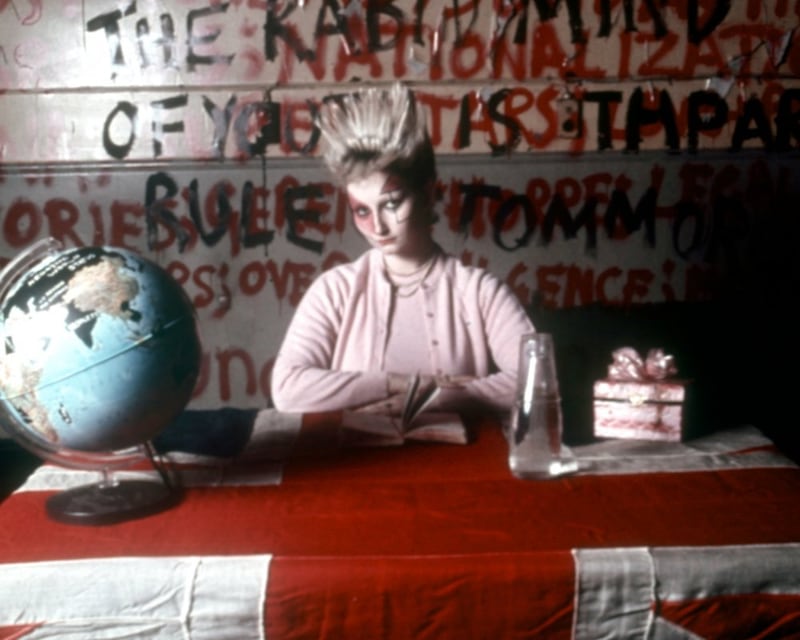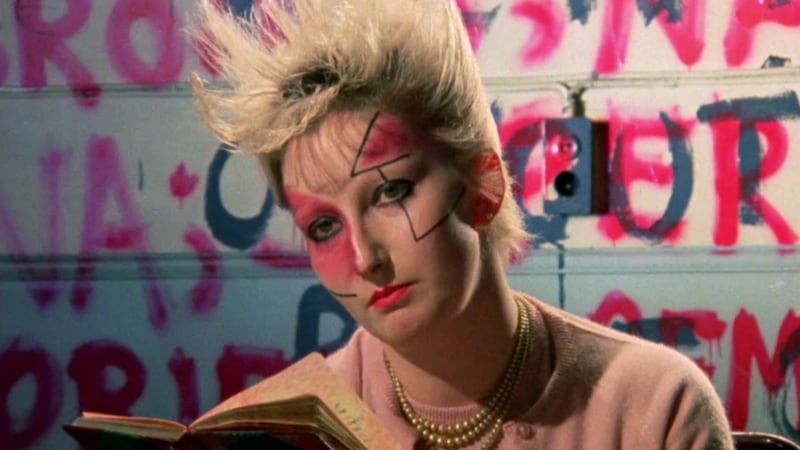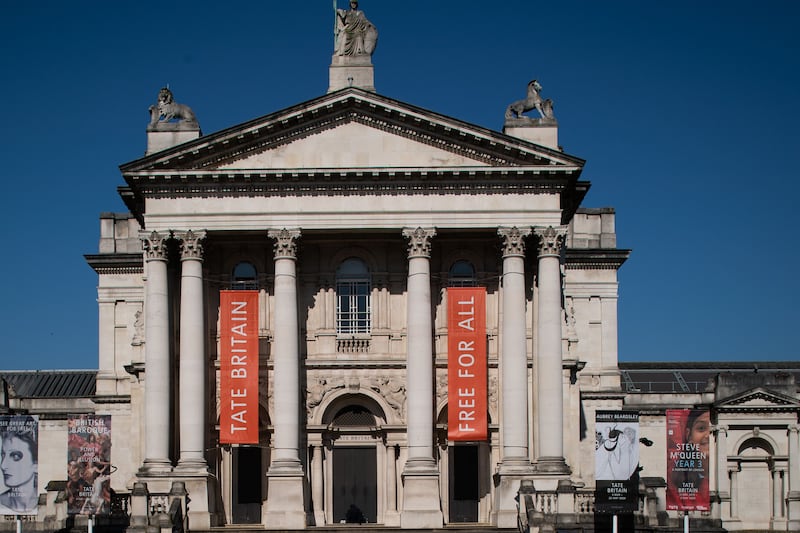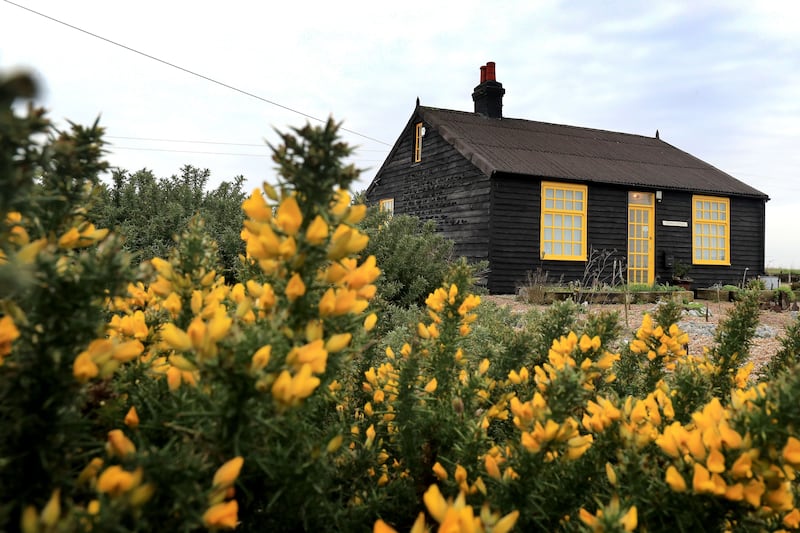JUBILEE, showing at the QFT next Tuesday as part of the Imagine! Belfast Festival, is often referred to as the first true punk movie.
While Derek Jarman’s film is loaded with period punk petulance, peopled with faces from the era like Jordan, Adam Ant and Toyah Wilcox, and boasts music from the likes of Siouxsie And The Banshees and Wayne County And the Electric Chairs, it’s much more than such a trite label suggests.
Released to much outrage in 1978, it’s a still fascinating blend of history and satire, fashion and fantasy, and sex and symbolism, all mixed together with a fiery punk attitude.
It’s a heady brew of cold ultra-violence and future vision vitriol, offset by an uneven and occasionally amateurish way with storytelling.
Jarman, with co-writer James Whaley, weaves a fantasy tale that sees Elizabeth I (Jenny Runacre) and her alchemist Dr John Dee (Richard O’Brien) summon up Ariel (David Brandon) and, thanks to Shakespeare’s magical creation from the Tempest, the trio are shot through time from the 16th century to the dystopian horror of 1970s England.
Read more:
Law and order has crumbled and anarchy rules: gangs of punks cause chaos on the streets, while prams are set alight and people are killed ruthlessly. Through it all, bands play endlessly on television and Buckingham Palace finds a new purpose as an enormous recording studio.
There are plenty of memorable moments to savour in the madness, including punk icon Jordan playing a character called Amyl Nitrate and bumping and grinding her way through an unforgettable version of Rule Britannia, while other bands and artists from the era like The Slits appear to smash a car to pieces in an act of impressive auto-destruction.

There’s also a fine Brian Eno soundtrack to enjoy as well.
While there’s a lot of shock for shock’s sake on show here, it’s still easy to see how Jarman managed to rattle the cages of both the establishment – Queen Elizabeth I is mugged and killed for her crown on Deptford waste ground early on – and the preening punk elite who found it all too cliché-ridden for comfort. If you’re managing to offend everyone with a film like this you must be doing something right.
It’s not the easiest film to enjoy in 2024, of course: a lot of its ‘edgy’ posturing and nihilistic attitude comes over as pretentious twaddle to modern eyes, and the levels of Thespian skill displayed by much of the cast borders on the pantomime at times - but, as a visually arresting document of a pre-gentrification London and an artistic statement about the teenage wasteland of 70s Britain, it’s pretty hard to beat.

While Jarman may have already made a cultural name for himself by 1978 - his debut film, Sebastian, had been released two years earlier in 1976 - Jubilee sets it in hard, brutalist concrete. It may be dressed up in the bondage trousers of punk, but really, this is a study of a London lost and flailing through the ages.
From Elizabethan to Dickensian and post-Pistols periods, this is a stylish and very personal love letter to the English capital in all its gory glory.








